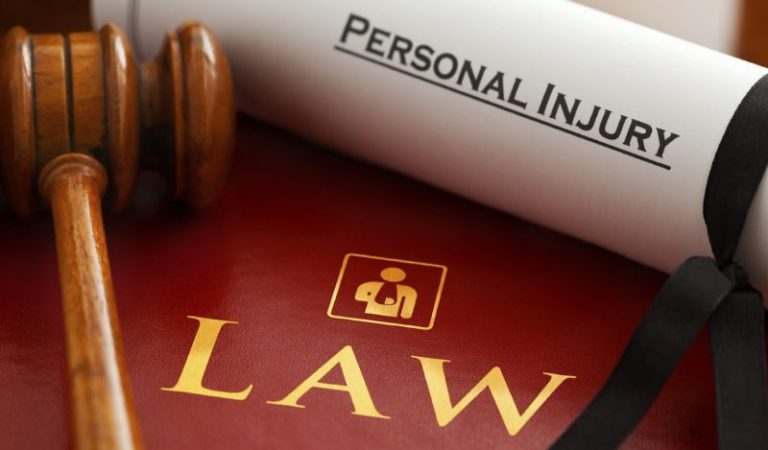

Seeking Immediate Medical Attention:
In California, as in any other state, workplace accidents can occur unexpectedly, posing risks to employees across various industries. Whether you’re navigating the hustle of Silicon Valley offices or the dynamic environments of California’s construction sites, the potential for injury is omnipresent. In such moments, understanding the appropriate steps to take becomes crucial not only for your immediate well-being but also for protecting your rights under California’s labor laws. Here, we present a thorough guide outlining the essential steps to take if you find yourself entangled in an accident resulting in injury at work in the Golden State.
Prompt Reporting of the Incident:
California employers are legally obligated to provide a safe workplace and adhere to stringent reporting requirements for workplace injuries. If you’re involved in an accident, it’s imperative to promptly report the incident to your employer or supervisor. Most workplaces have established protocols for reporting accidents and injuries, and failing to comply with these protocols can undermine your ability to seek compensation. By promptly reporting the incident and furnishing a detailed account, you lay the groundwork for establishing a comprehensive record, essential for any ensuing claims or legal actions.
Thorough Documentation of the Event:
Documenting the details surrounding a workplace injury is crucial under California’s labor laws. Be sure to capture photographs of the accident scene, relevant equipment, and environmental factors. Additionally, maintain detailed records of your injuries, including photographs where possible, and gather contact information for witnesses. California’s workers’ compensation system heavily relies on documentation, and thorough records can strengthen your case when pursuing benefits or legal recourse.
Initiating a Workers’ Compensation Claim:
California boasts robust workers’ compensation laws designed to protect employees injured on the job. If you’re injured at work in California, you’re entitled to file a workers’ compensation claim to secure benefits such as medical treatment, temporary disability payments, and potential vocational rehabilitation services. Timeliness is critical, as California imposes strict deadlines for reporting workplace injuries and filing workers’ compensation claims. Failure to adhere to these deadlines can jeopardize your ability to obtain benefits.
Adhering to Medical Advice:
Following medical advice is paramount to ensuring a smooth recovery process in California. Complying with your treating physician’s directives regarding treatment, rehabilitation, and follow-up care is essential. California’s workers’ compensation system places a premium on medical evidence, and adherence to medical advice can bolster your case when seeking benefits or pursuing legal action.
Understanding Your Rights Under California Law:
California provides extensive legal protections for injured workers, including rights to medical treatment, disability benefits, and protection against employer retaliation. Familiarizing yourself with California’s workers’ compensation laws and understanding your rights is crucial when navigating the aftermath of a workplace injury. Consulting with an experienced workers’ compensation attorney in California can provide invaluable guidance and ensure your rights are protected throughout the process.
Remaining Informed Throughout the Process:
Staying informed about the progress of your workers’ compensation claim is essential in California. Maintain regular communication with your employer, workers’ compensation insurance carrier, and legal representation. Stay updated on any developments or changes in your case, and don’t hesitate to seek clarification on any issues that may arise.
Considering Legal Action When Necessary:
In certain circumstances, pursuing legal action beyond the workers’ compensation system may be warranted in California. If your injury was caused by the negligence of a third party or if you believe your employer engaged in intentional misconduct, you may have grounds for a personal injury lawsuit. Consulting with a knowledgeable attorney who specializes in California’s labor laws can help you explore your legal options and pursue maximum compensation for your injuries.
Effective communication with your attorney is crucial throughout the legal process. A skilled lawyer can provide guidance on the complexities of California’s legal system, ensuring you understand your rights and options. Additionally, many law firms in California recognize the diverse linguistic needs of the population and offer services in multiple languages. For example, the Greenberg Ruby law group has Spanish-speaking lawyers who can assist the Spanish-speaking community in navigating their legal matters effectively. This commitment to accessibility ensures that all individuals, regardless of language barriers, can access the legal support they need during challenging times.
Prioritizing Self-Care and Recovery:
Above all else, prioritize your health and well-being during the recovery process in California. Focus on following your doctor’s orders, attending medical appointments, and engaging in activities that promote healing. California’s workers’ compensation system is designed to provide support for injured workers, but self-care remains paramount in ensuring a successful recovery.
In conclusion, navigating workplace injuries in California requires a thorough understanding of the state’s labor laws and workers’ compensation system. By following the steps outlined in this guide and seeking appropriate legal guidance when necessary, you can protect your rights, secure the benefits you deserve, and focus on your recovery with confidence. Remember, you’re not alone – California’s robust legal protections are in place to safeguard injured workers and ensure they receive the care and compensation they need to move forward.


